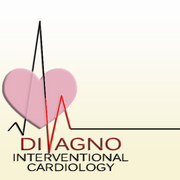
The human heart is surrounded by two thin layers of tissue separated by fluid called the pericardium. This membrane helps hold the heart and place and keeps it working as it should, but sometimes, it can become irritated and inflamed, causing chest pain. This condition is known as pericarditis, and while it usually passes quickly and doesn’t cause any lasting damage, it can be harmful to your heart and cardiac health.
What Causes Pericarditis?
Pericarditis can stem from a number of different health conditions, and in some cases, it’s idiopathic, meaning there isn’t any discernible cause. Because pericarditis often occurs in conjunction with respiratory infections, doctors often suspect a viral or bacterial infection when there isn’t any other clear reason for the inflammation. In these cases, the condition is typically acute, meaning it comes on quickly and lasts less than three weeks.
Sometimes, though, there is a clear cause for pericarditis. People with autoimmune conditions like lupus or rheumatoid arthritis are especially prone to the condition, as are individuals with other health conditions such as kidney failure, cancer, and HIV/AIDS. Some people also develop pericarditis after a heart attack or heart surgery, or other trauma to the chest, which irritates the underlying heart muscle. Certain medications, including blood thinners, can cause pericarditis in rare cases.
What Are the Symptoms of Pericarditis?
 Pericarditis often mimics the symptoms of a heart attack, most notably in that it causes chest pain. This pain is usually a sharp, shooting pain in the center of the chest or on the left side that worsens when you take a deep breath. Other symptoms include fatigue and a general feeling of being unwell, heart palpitations, coughing and shortness of breath, a low grade fever, and possible swelling in the legs or abdomen. Because the symptoms are so similar to those of a heart attack, seek medical treatment right away to get a proper diagnosis and treatment.
Pericarditis often mimics the symptoms of a heart attack, most notably in that it causes chest pain. This pain is usually a sharp, shooting pain in the center of the chest or on the left side that worsens when you take a deep breath. Other symptoms include fatigue and a general feeling of being unwell, heart palpitations, coughing and shortness of breath, a low grade fever, and possible swelling in the legs or abdomen. Because the symptoms are so similar to those of a heart attack, seek medical treatment right away to get a proper diagnosis and treatment.
How Is Pericarditis Treated?
Pericarditis can have serious consequences if it’s not treated, as it can disrupt your heart rhythm, so getting treatment is important. Diagnosis involves blood tests and often imaging tests, such as X-rays, electrocardiograms, and CT scans. If your pain is determined to be pericarditis, it will likely be treated with medication, including pain relievers, anti-inflammatories, and steroids, and a recommendation to rest. In rare cases, surgery may be required to remove fluid or a damaged pericardium.
If you have chest pain and other symptoms of a cardiac emergency, seek emergency medical care immediately and then turn to DiVagno Interventional Cardiology, MD, PA, in Bergen County, NJ, for exceptional cardiology services. They have more than 20 years of experience treating a range of cardiac conditions and can provide the individualized, compassionate care you need to keep your heart healthy. Visit their website for more information, or call (201) 845-3535 for an appointment.
About the Business


